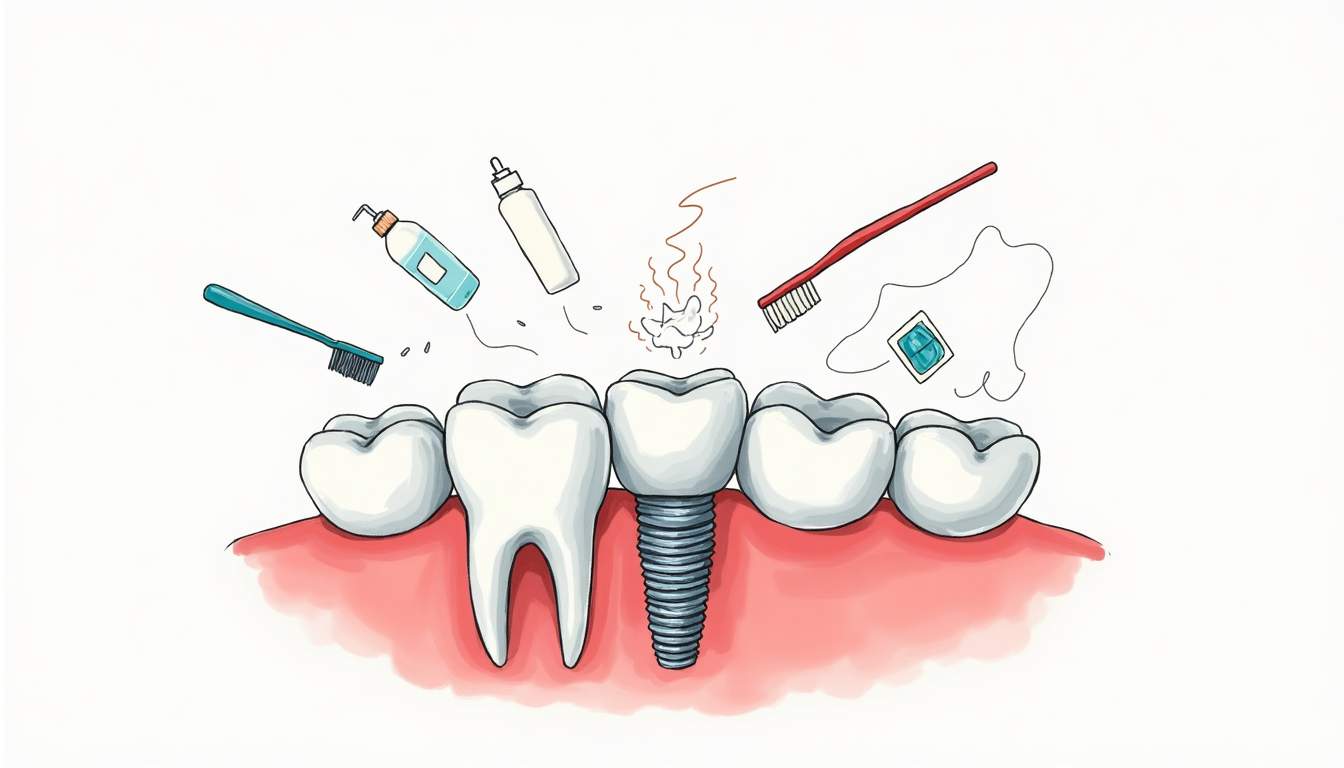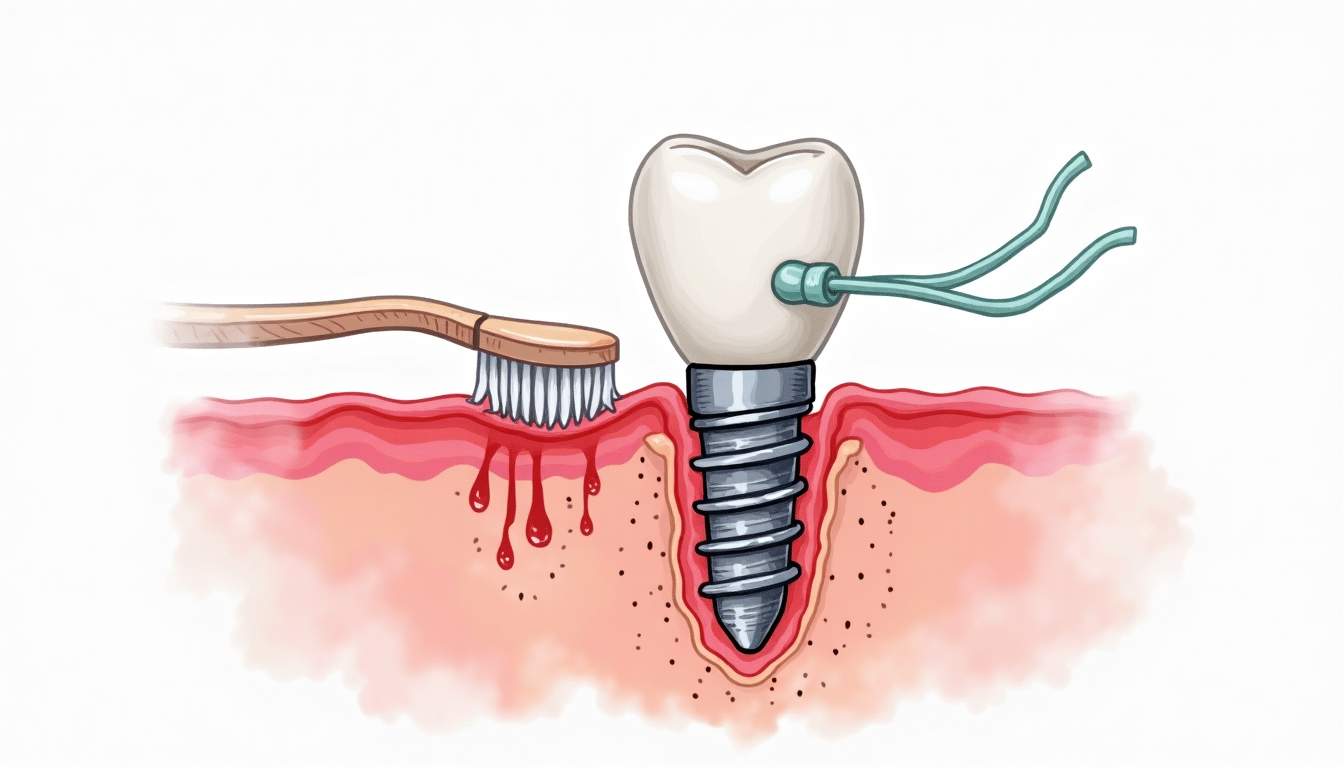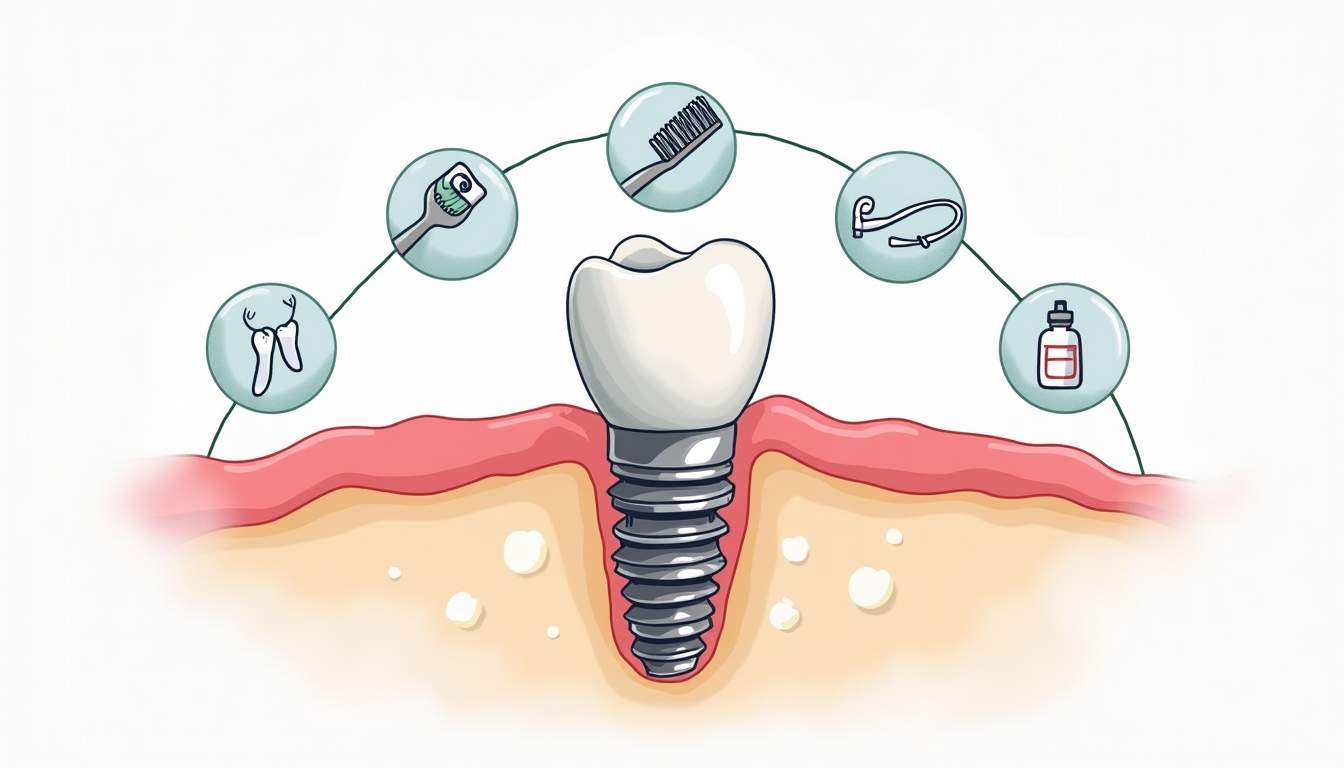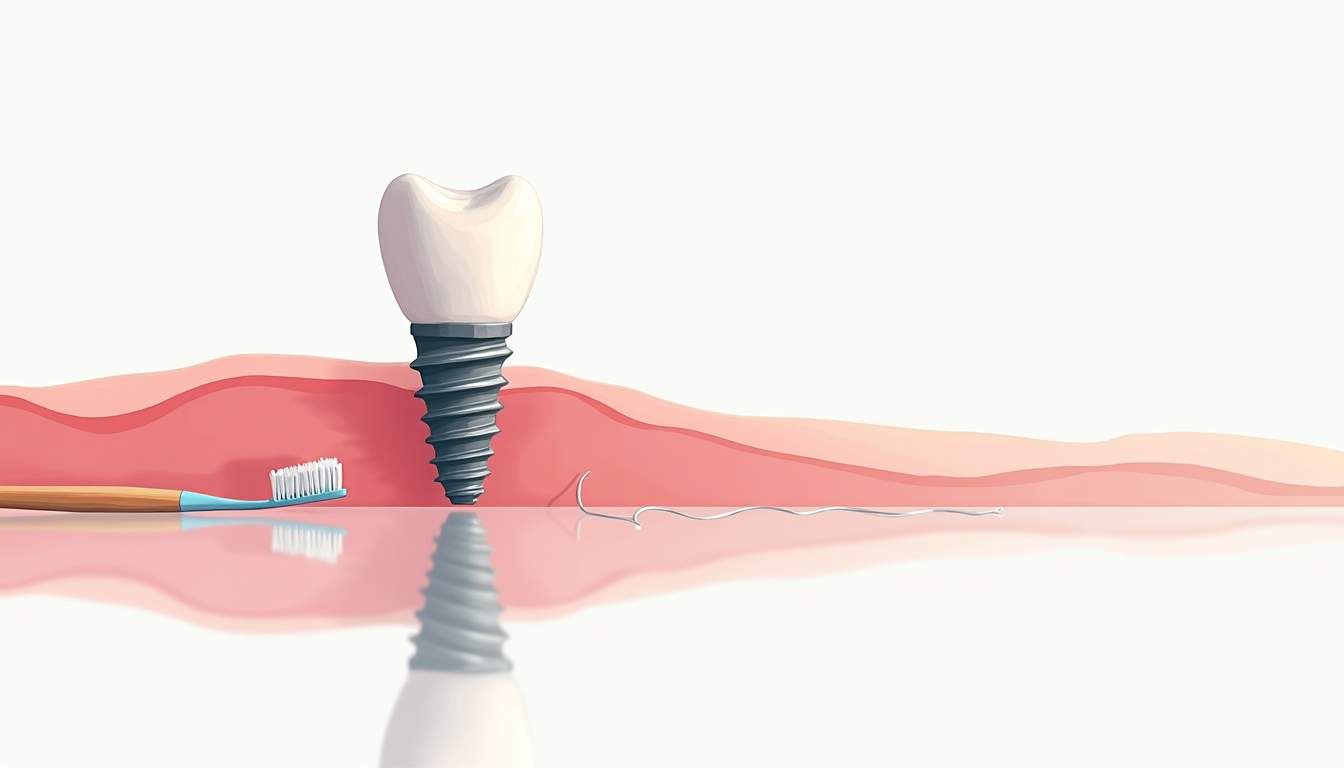
Dental implants can transform your smile and restore your confidence, but they require proper care to last for many years. Unlike natural teeth, implants have unique needs that, when met, help prevent complications and keep your mouth feeling comfortable. If you want your dental implants to serve you well, understanding how to care for them is essential.
Understanding Dental Implants and Why Care Matters
A dental implant is more than just a replacement tooth. It’s a titanium post surgically placed into your jawbone, acting as a root, with a crown attached on top. This setup mimics the function and appearance of a natural tooth closely. However, because implants integrate with your bone and surrounding tissues differently than natural teeth, their care demands a slightly different approach.
Good oral hygiene around implants helps prevent peri-implantitis, an inflammatory condition similar to gum disease that can cause bone loss and implant failure. Keeping your gums healthy and your implants clean is the key to avoiding this problem.
In addition to regular brushing and flossing, it’s essential to incorporate professional cleanings into your dental care routine. Dentists and dental hygienists can use specialized tools to remove plaque and tartar that may accumulate around the implant, areas that are sometimes difficult to reach with standard oral hygiene practices. These professional visits not only help maintain the health of your gums but also allow your dentist to monitor the integration of the implant with your jawbone, ensuring that everything is functioning as it should. For more detailed information on dental implant care and maintenance, check out the following link to Blue Tooth Dental’s comprehensive resources: https://maps.app.goo.gl/Qwi8
Moreover, lifestyle choices play a significant role in the longevity of dental implants. For instance, smoking can severely hinder healing and increase the risk of complications. Patients are often advised to quit smoking before and after the implant procedure to enhance their chances of success. Additionally, a balanced diet rich in vitamins and minerals supports oral health and bone density, which are crucial for the stability of implants. Understanding these factors and actively participating in your dental care can lead to a successful and lasting outcome for your dental implants.
Daily Cleaning Routine for Dental Implants
Brushing: Technique and Tools
Brushing your implants twice a day is non-negotiable. Use a soft-bristled toothbrush or an electric toothbrush with a gentle setting. Hard bristles can scratch the implant surface or irritate your gums. Pay attention to the gum line and the area where the implant meets the crown, as plaque tends to accumulate there.
Rather than aggressive scrubbing, use gentle circular motions. This approach removes plaque without damaging delicate tissues. If you find it hard to reach certain spots, especially if you have multiple implants or bridges, consider a toothbrush designed specifically for implants or orthodontic appliances. Additionally, some patients may benefit from using a toothbrush with a built-in timer to ensure they brush for the recommended two minutes, thus maximizing their cleaning routine.
It’s also worth noting that the type of toothpaste you choose can impact the longevity of your implants. Look for non-abrasive, fluoride-based toothpaste that is specifically formulated for sensitive gums and dental work. These products can help maintain the integrity of the implant while providing the necessary protection against cavities and gum disease.
Flossing and Interdental Cleaning
Flossing is just as important for implants as it is for natural teeth. Use implant-specific floss or a floss threader to clean under the crown and around the implant post. Regular floss may shred or be difficult to maneuver in tight spaces around implants.
Interdental brushes are another excellent tool. Choose a size that fits comfortably between your teeth without forcing it. These brushes help remove debris and plaque in areas your toothbrush can’t reach. For those with larger gaps or spaces between implants, a variety of brush sizes are available, allowing for a customized cleaning experience. Regular use of these tools not only helps in maintaining oral hygiene but also promotes healthy gum tissue, which is crucial for the stability of your implants.
Consider incorporating a daily routine that includes both flossing and interdental cleaning, as this dual approach can significantly reduce the risk of peri-implantitis, an inflammatory condition that can affect the tissues surrounding dental implants. Establishing a consistent schedule can make these practices feel like second nature, ensuring that your implants remain in optimal condition.
Rinsing: Mouthwash and Water Irrigators
Rinsing with an antimicrobial mouthwash can reduce bacteria around your implants. Avoid mouthwashes with alcohol, as they can dry out your mouth and irritate tissues. Instead, opt for alcohol-free formulas recommended by your dentist.
Water irrigators, or oral irrigators, can be particularly helpful. They use a stream of water to flush out food particles and plaque from hard-to-reach areas. Many patients find that adding an antimicrobial solution to the irrigator’s reservoir enhances cleaning effectiveness. This method not only helps in maintaining cleanliness but also provides a soothing effect on the gums, which can be beneficial for those experiencing sensitivity after implant placement.
In addition to regular rinsing, consider scheduling periodic follow-up appointments with your dental professional. These visits can include professional cleanings and examinations to ensure that your implants and surrounding tissues remain healthy. Your dentist may also provide personalized recommendations based on your specific oral health needs, helping you to maintain a robust cleaning regimen tailored to your lifestyle.
Regular Dental Visits: What to Expect and Why They’re Crucial
Even with excellent home care, professional maintenance is vital. Your dentist or hygienist will check the health of your implants, clean areas you might miss, and catch early signs of problems.
Professional Cleanings
During your visits, the dental team will use special instruments designed not to scratch the implant surfaces. These cleanings remove hardened plaque (calculus) and help maintain gum health. Regular cleanings every three to six months are typical for implant patients, depending on your individual risk factors. Additionally, the cleaning process often includes polishing the surfaces of the implants, which not only enhances their appearance but also helps to minimize the accumulation of future plaque. This thorough approach ensures that your mouth remains a healthy environment, which is essential for the longevity of your dental implants.
Monitoring Implant Health
Your dentist will assess the stability of the implant, the condition of surrounding bone, and the health of your gums. X-rays may be taken periodically to monitor bone levels. Early detection of issues like bone loss or inflammation allows for prompt treatment, increasing the chances of saving the implant. Furthermore, during these visits, your dentist may discuss any changes in your overall health or medications that could impact your dental health. This holistic approach is crucial, as certain medical conditions, such as diabetes or autoimmune disorders, can affect healing and maintenance of implants. By staying informed about your health, your dental team can tailor their care to better suit your needs, ensuring optimal outcomes for your dental implants.
Habits That Can Affect Your Dental Implants
Diet and Implant Care
While dental implants are strong, they aren’t invincible. Avoid biting down on very hard objects like ice, hard candies, or pens. These can damage the crown or put excessive stress on the implant. It’s essential to be mindful of your food choices, as certain textures can lead to complications. For instance, foods that require a lot of chewing, such as tough meats or crusty bread, can inadvertently put pressure on your implants. Instead, opt for softer alternatives that are easier to chew and less likely to cause issues.
Sticky or chewy foods can also pose a challenge by pulling at the crown or trapping food particles around the implant. Eating a balanced diet rich in vitamins and minerals supports your overall oral health and helps your gums stay healthy. Incorporating foods high in calcium, such as dairy products, leafy greens, and fortified plant-based alternatives, can strengthen your jawbone and support the stability of your implants. Additionally, foods rich in vitamin C, like citrus fruits and bell peppers, can enhance gum health and promote healing, making them excellent choices for anyone with dental implants.
Avoiding Harmful Behaviors
Smoking is one of the biggest threats to implant success. It impairs blood flow to the gums and bone, slowing healing and increasing the risk of infection. Quitting smoking or reducing tobacco use significantly improves implant longevity. Moreover, the harmful chemicals in tobacco can lead to periodontal disease, which jeopardizes the supporting structures of your implants. For those struggling to quit, seeking support through counseling or nicotine replacement therapies can be beneficial in fostering a healthier lifestyle.
Grinding or clenching your teeth (bruxism) can cause mechanical stress on implants. If you have this habit, your dentist may recommend a nightguard to protect your implants and natural teeth from damage. Additionally, stress management techniques such as mindfulness, yoga, or regular exercise can help reduce the frequency of bruxism. Understanding the triggers that lead to teeth grinding, whether they be stress or misalignment, can empower you to take proactive steps in preserving your dental health and ensuring the longevity of your implants.
Signs Your Dental Implants Need Attention
Being aware of warning signs can help you seek timely care. If you notice persistent pain, swelling, or bleeding around your implant, don’t ignore it. These symptoms may indicate infection or inflammation.

Mobility of the implant or changes in how your bite feels are also red flags. Implants should feel stable and comfortable. Any looseness or discomfort warrants a dental evaluation.
Additional Tips for Long-Term Comfort and Success
Maintain Overall Oral Health
Healthy gums and bone are the foundation of implant success. Keep up with regular dental checkups and cleanings, and manage any gum disease promptly.

Stay Hydrated and Manage Dry Mouth
Saliva plays a crucial role in protecting your mouth from bacteria. If you experience dry mouth, whether due to medications or other reasons, talk to your dentist about ways to increase moisture and protect your implants.
Use Protective Gear During Sports
If you play contact sports, wearing a mouthguard can protect your implants and natural teeth from injury.
Final Thoughts
Dental implants are an excellent investment in your oral health and quality of life. They require care and attention, but the routine isn’t complicated. With daily cleaning, regular dental visits, and mindful habits, your implants can remain comfortable and functional for decades.

Taking these steps ensures your smile stays healthy and beautiful, allowing you to enjoy the benefits of your dental implants without worry.



